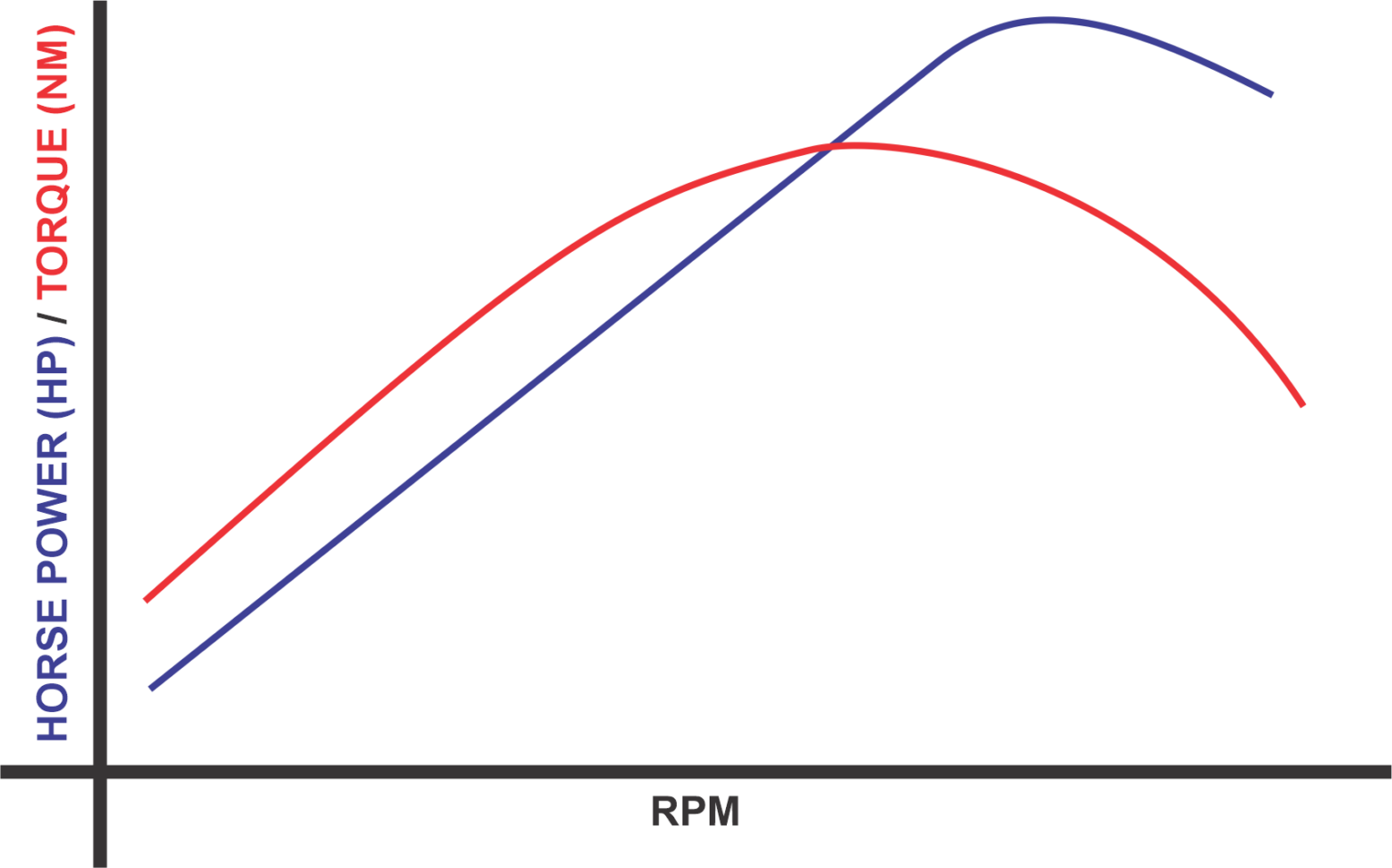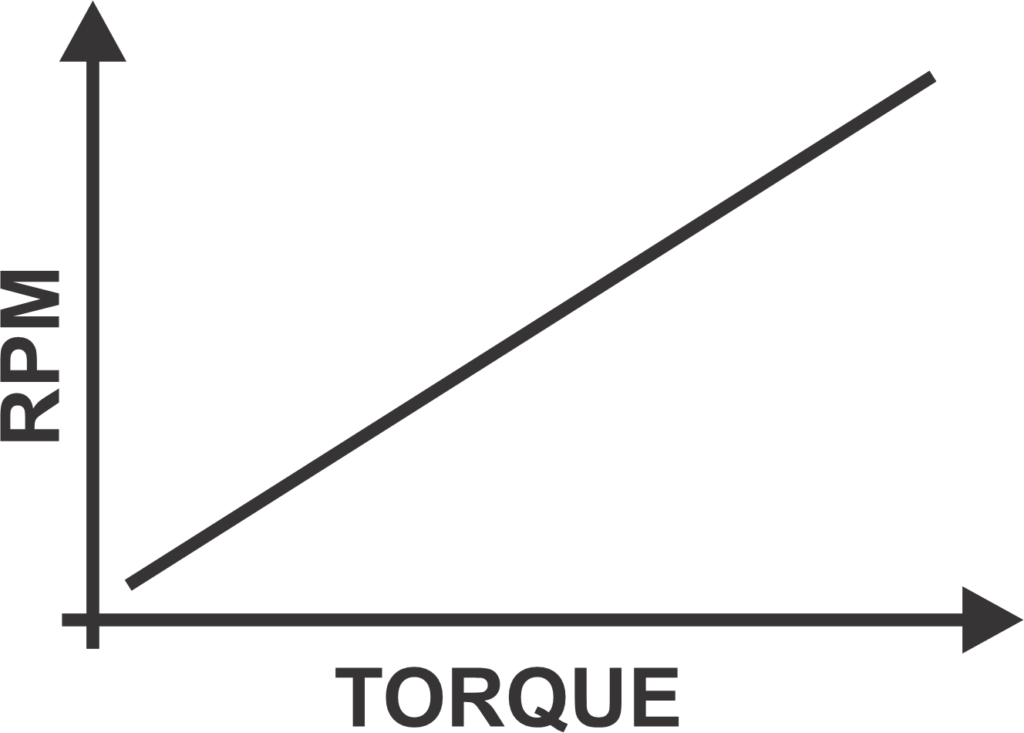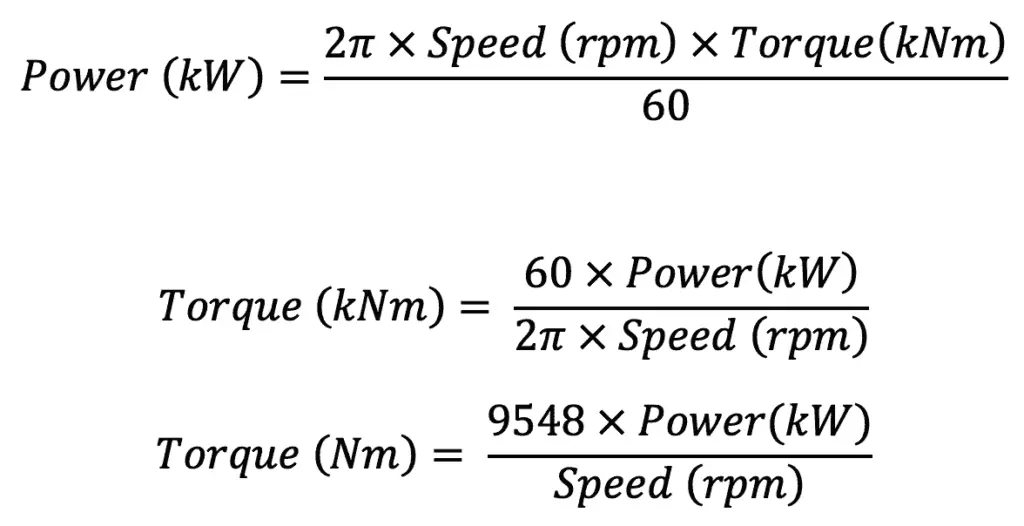Exemplary Tips About Is RPM And Torque Same

Torque Curves Of Electric Motor And Internal Combustion Engine 2. The
Understanding RPM and Torque
1. What's the Real Deal with RPM and Torque?
Ever wondered what those numbers mean when someone's bragging about their car's engine? You've probably heard of RPM and torque. People often use these terms like they're interchangeable, but that's like saying a marathon runner and a weightlifter are the same because they're both athletes. They're related, sure, but their skills — and in this case, their measurements — are quite different.
Think of it this way: RPM, or Revolutions Per Minute, is all about speed. It tells you how fast the engine's crankshaft is spinning. A higher RPM generally means the engine is working harder and producing more power — at least, potentially. But speed alone doesn't tell the whole story.
Now, torque, on the other hand, is about twisting force. It's the "oomph" that gets you moving. Imagine trying to loosen a really tight bolt. You need a lot of torque to break it free. Similarly, an engine with high torque can pull heavy loads or accelerate quickly.
So, are they the same? Absolutely not. They're partners in crime, working together to make your car go, but they measure completely different things. One is about how fast things are spinning, and the other is about how much force is being applied. Think of RPM as the rhythm of the music, and torque as the power of the bass.

Torque Vs Horsepower Explained Automotive Car Engines & Physics YouTube
Torque
2. Why Torque Matters More Than You Think
Let's dive a little deeper into torque, because honestly, it's the unsung hero in many driving situations. Sure, high RPM sounds cool, but torque is what you feel in your gut when you floor the accelerator. It's the pulling power that gets you up hills and lets you overtake other cars with confidence.
Imagine two cars, both with the same horsepower (we'll get to horsepower later, promise!). One has high RPM and low torque, while the other has low RPM and high torque. The high-torque car will generally feel more responsive and easier to drive in everyday situations. It won't need to rev as high to get the job done. Think of a big diesel truck — it doesn't need to scream at high RPMs to haul a massive load.
Torque is especially important for things like towing, off-roading, and even just merging onto a busy highway. You need that instant power to get up to speed quickly and safely. It's the difference between feeling like you're straining to keep up and feeling like you've got plenty of power to spare.
So, next time you're comparing vehicles, don't just focus on the horsepower number. Pay attention to the torque figure too. It could make a bigger difference to your driving experience than you realize. Especially if you're planning on doing anything that requires some serious pulling power!

RPM
3. The Role of RPM in Engine Performance
Okay, we've given torque a lot of love, but let's not forget about RPM. It's still a crucial part of the engine's equation. RPM, as we mentioned before, indicates how many times the engine's crankshaft completes a full rotation in a minute. Higher RPM means the engine is spinning faster, which can translate to more power—provided the torque is there to back it up.
Think of a sports car engine. These engines are often designed to rev very high, reaching RPMs that would make a truck engine explode. This high RPM capability allows them to generate a lot of horsepower, which is what ultimately determines the car's top speed. However, they might not have as much low-end torque as a truck engine, meaning they need to rev higher to get up to speed.
The relationship between RPM and torque is what engineers work tirelessly to optimize. They aim to create engines that produce a wide band of torque across a range of RPMs. This gives the driver a responsive and enjoyable driving experience, whether they're cruising on the highway or accelerating hard.
It's also important to note that exceeding the engine's maximum RPM can be harmful. The "redline" on your tachometer indicates the safe upper limit. Pushing the engine beyond this point can lead to serious damage. So, while high RPM can be exhilarating, it's best to stay within the engine's limits.

Torque And RPM The Dynamic Duo Of Power Tool Performance
Horsepower
4. Where Horsepower Fits into the Equation
Now, let's bring in the final piece of the puzzle: horsepower. Horsepower is essentially a calculation that combines RPM and torque. It's a measure of how much work the engine can do per unit of time. Think of it as the overall "strength" of the engine.
The formula for horsepower is quite simple: Horsepower = (Torque x RPM) / 5252. This formula shows that horsepower is directly proportional to both torque and RPM. So, an engine with high torque and high RPM will produce a lot of horsepower.
Horsepower is often used as a headline figure when comparing engine performance, and for good reason. It gives you a good overall sense of the engine's capabilities. However, it's important to remember that horsepower doesn't tell the whole story. You still need to consider the torque curve and the RPM range at which the engine produces its peak power.
Ultimately, the ideal combination of RPM, torque, and horsepower depends on the specific application. A truck needs lots of low-end torque, a sports car needs high-end horsepower, and a daily driver needs a good balance of both. Understanding these relationships can help you make a more informed decision when choosing a vehicle.

Mechanical Advantage Of Gears At Margaret Orozco Blog
Finding the Right Balance
5. Choosing Based on Your Driving Needs
So, we've established that RPM and torque aren't the same thing, but they're definitely partners. The best combination for you depends on your specific needs. Are you looking for a car that can tow a boat? Prioritize torque. Do you crave the thrill of high-speed acceleration? Look for an engine with high horsepower and a wide RPM range. Commuting to work daily? A good balance of both might be ideal.
Consider your driving style. Do you prefer to cruise at low RPMs, enjoying the smooth, effortless power of a torquey engine? Or do you like to rev the engine high, feeling the surge of power as the RPMs climb? There's no right or wrong answer; it's all about personal preference.
Don't be afraid to do your research. Read reviews, compare specifications, and most importantly, take test drives. Get a feel for how different engines perform in the real world. Pay attention to how the car feels when you accelerate, climb hills, and merge onto the highway.
Ultimately, the goal is to find a car that you enjoy driving. Understanding the relationship between RPM, torque, and horsepower can help you make a more informed decision and choose a vehicle that perfectly suits your needs and preferences. So, go out there and find your perfect driving match!

FAQ
6. Your Burning Questions Answered
Still got questions swirling around your head? Let's tackle some common queries about RPM and torque:
7. Q
A: Not necessarily! Higher RPM can mean more power, but only if the engine is also producing sufficient torque at that RPM. An engine spinning very fast without much torque will be noisy but not particularly powerful.
8. Q
A: It depends on what you're doing. Torque is crucial for getting things moving, especially heavy loads. Horsepower determines your top speed and overall performance. For everyday driving, a good balance of both is usually best.
9. Q
A: Yes, there are ways! Performance upgrades like aftermarket exhaust systems, cold air intakes, and engine tuning can potentially increase torque output. However, it's essential to consult with a qualified mechanic to ensure any modifications are safe and effective. And please, don't try to do it yourself unless you really, really know what you're doing. You might end up with a very expensive paperweight!